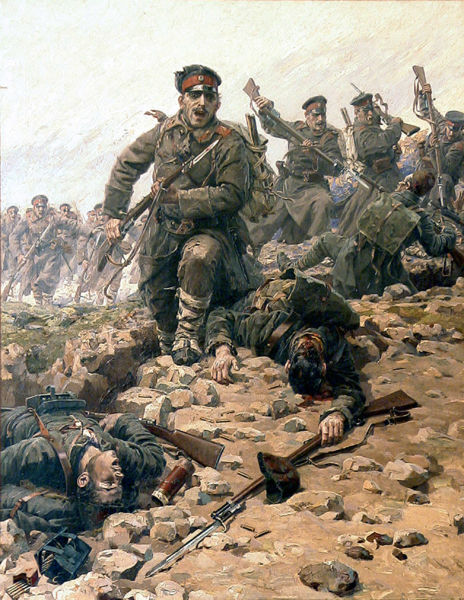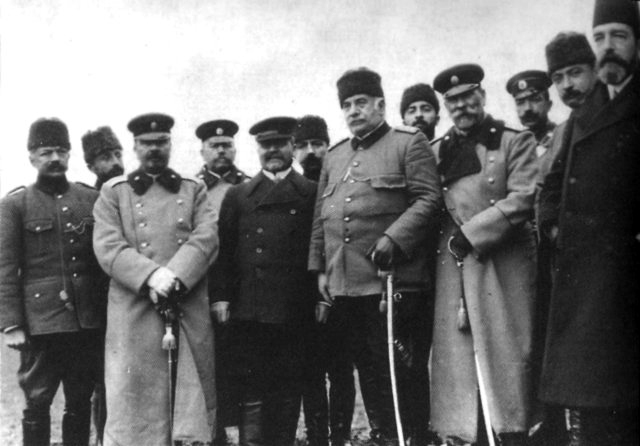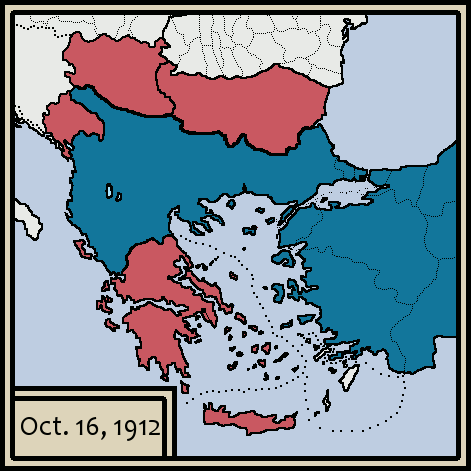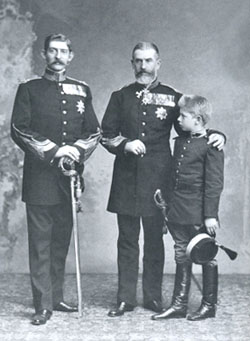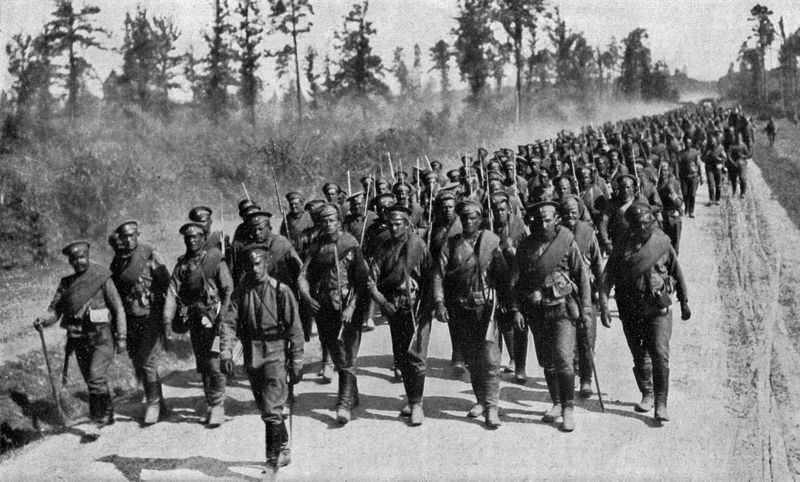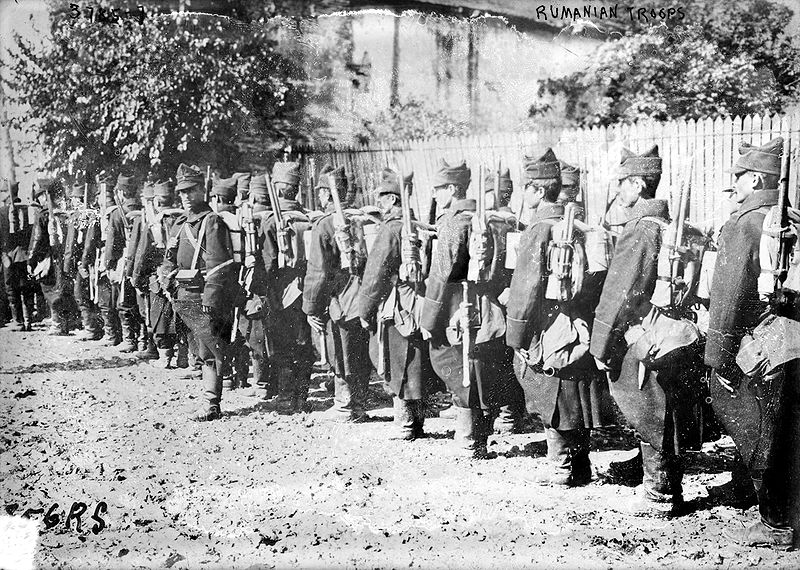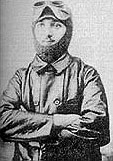I took an idea from another aborted TL and hope that this one will go a bit further when put in this setting. This covers one of the PODs but it won't matter until the next one happens. Basically, this is to add more flavor to the second, make it a bit more original.
Blut & Water: A Collected History of the Diplomacy War
Prologue:
Two Teutonic Titans
“A diplomat can tell you to go to hell in a way that you actually look forward to the trip." - Caskie Stinnett [1]
“November 30th, 1899 marked the beginning of a new model in Anglo-German relationships, and subsequently a new model of European and world politics. Although Baron Hermann von Eckardstein, First Secretary of the German Embassy, had first contacted Joseph Chamberlain in the previous year, there had been little progress and certainly nothing official. However, in November of 1899, the Chamberlain was given another chance. Following a friendly and promising visit from Kaiser Wilhelm II and Bernhard von Bülow, Secretary for Foreign Affairs, Chamberlain openly praised Germany and spoke of a possible future together, speaking of “a new friendship between the Teutonic race and the two great trans-Atlantic branches of the Anglo-Saxon race which would become a potent influence on the future of the world.” [2] This newly budding friendship would be tested very soon.
“In attempt to stop matériel from reaching the Boers in the Free State and Transvaal, the Royal Navy effectively began intercepting and inspecting foreign ships. However, the Unionist Government thought it would be unwise to upset Germany and so German ships were only shadowed in as they passed through the region. [3] Anglo-German relations were nearly irreversibly damaged as Admiral Tirpitz attempted to pass the Second Naval Law. However, these flames were suppressed by von Bülow and Friedrich von Holstein, who were able to convince Wilhelm that such an expansion of the Kaiserliche Marine would be seen as too aggressive against the Royal Navy, an ally Wilhelm very much wanted. The Second Naval Law did pass but it was weakened from Tirpitz's original hopes, only increasing the number of battleships by seven and instead focusing on a cruisers to support colonial territories. The reasoning for this was that Germany did not want to challenge British authority on the seas, but merely be well defended, both around the continent and in her colonies.
“There was no official aligning of the British and German peoples until Arthur Balfour's term as Prime Minister. When Lord Salisbury resigned in late June of 1902, the Second Boer War had just ended and Edward VII's coronation would soon follow. Balfour replaced Lord Lansdowne as Secretary of State of Foreign Affairs with Joseph Chamberlain, in part due to persuasion by Walter Rothschild, who was beginning to become a closer ally of both men. [4] What was more important, however, was his connection with Edward VII. The Rothschild family had kept close connections with the soon-to-be King, offering a fair amount of financial advice and Walter himself had been seen with the Prince, who was criticized for openly associating with Jews.
“On February 7, 1903, the Anglo-German Treaty was signed, although it would later be amended several times, in relative secrecy. It was not a lengthy document, consisting of only six brief points, while using vague language such as 'spheres of influence' and a 'promise to communicate'. The full impact of this action would not be fully realized until a decade later.” [5]
The Triumvirate by Jack Bauer, Harvard University Press, 1978
Article 1 The High Contracting parties declare themselves to be entirely uninfluenced by aggressive tendencies by either country, having in view, however, their special interests, relating to their colonies, the High Contracting parties recognize that it will be admissible for either of them to take such measures as may be indispensable in order to safeguard those interests if threatened either by the aggressive action of any other Power, or by disturbances arising in their respective spheres of influence, and necessitating the intervention of either of the High Contracting parties for the protection of the lives and properties of its subjects.
Article 2 If either signatory becomes involved in war through Article 1, it is permissible for a power to declare neutrality.
Article 3 Promise of support if either signatory becomes involved in war with more than one Power.
Article 4 Signatories promise not to enter into separate agreements with other Powers to the prejudice of this alliance.
Article 5 The signatories promise to communicate frankly and fully with each other when any of the interests affected by this treaty are in jeopardy.
Article 6 Treaty to remain in force for five years and then at one years' notice, unless notice was given at the end of the fourth year.
Anglo-Germanic Treaty of 1905
------------
[1] TTL's version of the quote. OTL's version: “A diplomat is a person who can tell you to go to hell in such a way that you actually look forward to the trip.”
[2] A minor POD: IOTL Chamberlain said 'alliance' rather than 'friendship' and was mocked for such a premature statement.
[3] IOTL three German ships were boarded and searched for arms, with none being found. This offended the German public and government. It was in this atmosphere of bitterness towards the British and their Navy that the Second Naval Law, arguably the most critical of bunch, was passed. ITTL this does not happen.
[4] Walter Rothschild could have been a much more influential man. ITTL he is still interested in zoology and lepidopterist, but to a lesser extent, also focusing on the family banking and politics. The reason he would support Chamberlain, who was more German-friendly than Lord Lansdowne (Secretary of State for Foreign Affairs in OTL during the beginning of the Entente Cordiale), for this position would be due to Chamberlain's Zionist sympathies.
[5] It is basically an entente cordiale, the UK refusing to be truly tied to continental affairs, just like OTL. Some of the issues that OTL's Entente Cordialeresolves are not fixed but France and the UK do not have anything as large as the Fashoda Incedent happen.
Blut & Water: A Collected History of the Diplomacy War
Prologue:
Two Teutonic Titans
“A diplomat can tell you to go to hell in a way that you actually look forward to the trip." - Caskie Stinnett [1]
“November 30th, 1899 marked the beginning of a new model in Anglo-German relationships, and subsequently a new model of European and world politics. Although Baron Hermann von Eckardstein, First Secretary of the German Embassy, had first contacted Joseph Chamberlain in the previous year, there had been little progress and certainly nothing official. However, in November of 1899, the Chamberlain was given another chance. Following a friendly and promising visit from Kaiser Wilhelm II and Bernhard von Bülow, Secretary for Foreign Affairs, Chamberlain openly praised Germany and spoke of a possible future together, speaking of “a new friendship between the Teutonic race and the two great trans-Atlantic branches of the Anglo-Saxon race which would become a potent influence on the future of the world.” [2] This newly budding friendship would be tested very soon.
“In attempt to stop matériel from reaching the Boers in the Free State and Transvaal, the Royal Navy effectively began intercepting and inspecting foreign ships. However, the Unionist Government thought it would be unwise to upset Germany and so German ships were only shadowed in as they passed through the region. [3] Anglo-German relations were nearly irreversibly damaged as Admiral Tirpitz attempted to pass the Second Naval Law. However, these flames were suppressed by von Bülow and Friedrich von Holstein, who were able to convince Wilhelm that such an expansion of the Kaiserliche Marine would be seen as too aggressive against the Royal Navy, an ally Wilhelm very much wanted. The Second Naval Law did pass but it was weakened from Tirpitz's original hopes, only increasing the number of battleships by seven and instead focusing on a cruisers to support colonial territories. The reasoning for this was that Germany did not want to challenge British authority on the seas, but merely be well defended, both around the continent and in her colonies.
“There was no official aligning of the British and German peoples until Arthur Balfour's term as Prime Minister. When Lord Salisbury resigned in late June of 1902, the Second Boer War had just ended and Edward VII's coronation would soon follow. Balfour replaced Lord Lansdowne as Secretary of State of Foreign Affairs with Joseph Chamberlain, in part due to persuasion by Walter Rothschild, who was beginning to become a closer ally of both men. [4] What was more important, however, was his connection with Edward VII. The Rothschild family had kept close connections with the soon-to-be King, offering a fair amount of financial advice and Walter himself had been seen with the Prince, who was criticized for openly associating with Jews.
“On February 7, 1903, the Anglo-German Treaty was signed, although it would later be amended several times, in relative secrecy. It was not a lengthy document, consisting of only six brief points, while using vague language such as 'spheres of influence' and a 'promise to communicate'. The full impact of this action would not be fully realized until a decade later.” [5]
The Triumvirate by Jack Bauer, Harvard University Press, 1978
Article 1 The High Contracting parties declare themselves to be entirely uninfluenced by aggressive tendencies by either country, having in view, however, their special interests, relating to their colonies, the High Contracting parties recognize that it will be admissible for either of them to take such measures as may be indispensable in order to safeguard those interests if threatened either by the aggressive action of any other Power, or by disturbances arising in their respective spheres of influence, and necessitating the intervention of either of the High Contracting parties for the protection of the lives and properties of its subjects.
Article 2 If either signatory becomes involved in war through Article 1, it is permissible for a power to declare neutrality.
Article 3 Promise of support if either signatory becomes involved in war with more than one Power.
Article 4 Signatories promise not to enter into separate agreements with other Powers to the prejudice of this alliance.
Article 5 The signatories promise to communicate frankly and fully with each other when any of the interests affected by this treaty are in jeopardy.
Article 6 Treaty to remain in force for five years and then at one years' notice, unless notice was given at the end of the fourth year.
Anglo-Germanic Treaty of 1905
------------
[1] TTL's version of the quote. OTL's version: “A diplomat is a person who can tell you to go to hell in such a way that you actually look forward to the trip.”
[2] A minor POD: IOTL Chamberlain said 'alliance' rather than 'friendship' and was mocked for such a premature statement.
[3] IOTL three German ships were boarded and searched for arms, with none being found. This offended the German public and government. It was in this atmosphere of bitterness towards the British and their Navy that the Second Naval Law, arguably the most critical of bunch, was passed. ITTL this does not happen.
[4] Walter Rothschild could have been a much more influential man. ITTL he is still interested in zoology and lepidopterist, but to a lesser extent, also focusing on the family banking and politics. The reason he would support Chamberlain, who was more German-friendly than Lord Lansdowne (Secretary of State for Foreign Affairs in OTL during the beginning of the Entente Cordiale), for this position would be due to Chamberlain's Zionist sympathies.
[5] It is basically an entente cordiale, the UK refusing to be truly tied to continental affairs, just like OTL. Some of the issues that OTL's Entente Cordialeresolves are not fixed but France and the UK do not have anything as large as the Fashoda Incedent happen.
Last edited:
